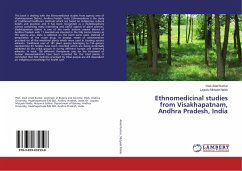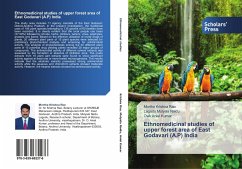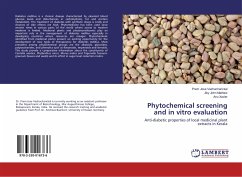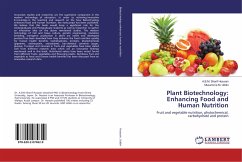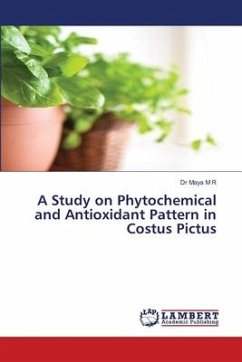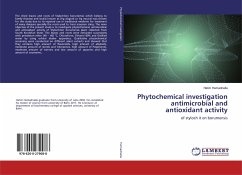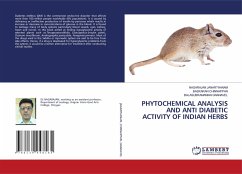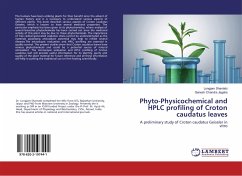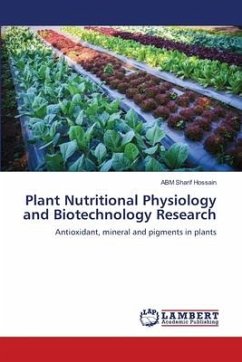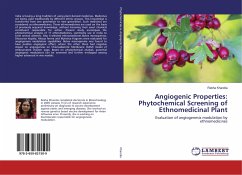
Angiogenic Properties: Phytochemical Screening of Ethnomedicinal Plant
Evaluation of angiogenesis modulation by ethnomedicines
Versandkostenfrei!
Versandfertig in 6-10 Tagen
36,99 €
inkl. MwSt.

PAYBACK Punkte
18 °P sammeln!
India is having a long tradition of using plant derived medicines. Medicines are being used traditionally by different ethnic groups. This knowledge is transferred from one generation to next generation. Such medicines are considered as ethnomedicines. These ethnomedicines are used on the basis of previously acquired knowledge, without knowing their exact chemical constituent responsible for action. Present study encompass the phytochemical analysis of 17 ethnomedicines, commonly use in India to treat several ailments. Also 4 selected ethnomedicines Butea monosperma, Dioscorea hispida, Mesua f...
India is having a long tradition of using plant derived medicines. Medicines are being used traditionally by different ethnic groups. This knowledge is transferred from one generation to next generation. Such medicines are considered as ethnomedicines. These ethnomedicines are used on the basis of previously acquired knowledge, without knowing their exact chemical constituent responsible for action. Present study encompass the phytochemical analysis of 17 ethnomedicines, commonly use in India to treat several ailments. Also 4 selected ethnomedicines Butea monosperma, Dioscorea hispida, Mesua ferrea and Myristica fragrans were evaluated for angiogenesis modulation capabilities. Butea monosperma was found to have positive angiogenic effect, where the other three had negative impact on angiogenesis on Chorioallanotic Membrane (CAM) model of embryonated chicken eggs. Based on phytochemical analysis, potential angiogenic modulators can be screened and further envisaged among higher advanced in vivo models.



